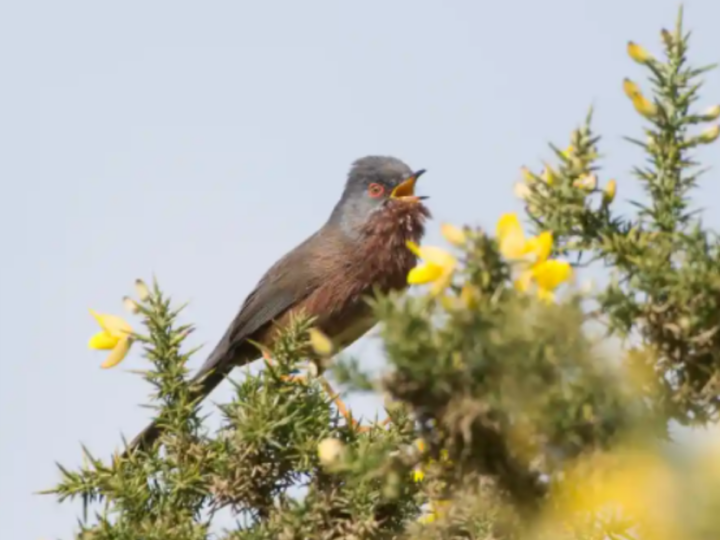Source: The Guardian
The distinctive sight and sound of a Dartford warbler singing from the top of a sprig of gorse in the May sunshine is making a welcome comeback after the bird almost became extinct half a century ago.
Dartford warblers suffered a population crash and were at risk of vanishing from the UK in the 1960s, largely because of loss of the lowland heathland they thrive in.
But the RSPB is reporting the highest recorded number of Dartford warblers – 183 pairs – at its reserves including RSPB Arne in Dorset and RSPB Minsmere in Suffolk.
As well as needing the cover provided by gorse, the bird is susceptible to harsh weather and was almost wiped out in the big freeze of 1962-3 but recent milder weather has helped it to bounce back.
The population has recovered in recent years and by 2019, 23 pairs were found at the Minsmere coastal reserve; the figures show that there are now 37 pairs there.
Mel Kemp, the warden at Minsmere, who has overseen heathland restoration at the site, said: “We have seen a steady increase in the number of Dartford warblers, alongside other species relying on heathland habitats such as nightjar. All the hard work of restoring this habitat has really paid off.”
The Dartford warblers are long-tailed warblers; male slate grey and chestnut birds are often spotted singing from the tops of gorse bushes in the spring sunshine, hoping to attract a mate.
As well as being the perfect singing platform, the spiky shrub provides a safe nesting place and hunting ground for the bird, which specialises in picking spiders and caterpillars from their hiding places.
Heathland supports a range of wildlife, from birds and mammals to insects, reptiles and amphibians but it is one of the UK’s most threatened homes for nature, with 80% lost since the 1800s through change of land use.
Kemp said: “We need to continue to restore, manage and protect the heathland we have left here in the UK to best ensure the future of not just the Dartford warbler, but many other species.”
As well as doing well in Dorset and Suffolk, Dartford warblers have been seen at RSPB reserves in Devon, Kent, Surrey and Hampshire.
The return of the warbler is the second piece of good bird news in a week for Dorset after it was revealed that a pair of ospreys in Poole harbour had produced an egg, the first breeding attempt for the species in southern England for almost 200 years.
To see full article: https://www.theguardian.com/environment/2022/may/02/dartford-warbler-welcomed-near-extinction-rspb











